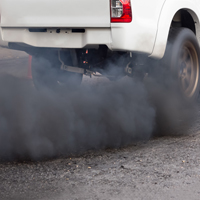MENU
- Home
- Overview
- Attorneys
- Practice Areas
- Firm News
- Blog
- Contact
 The Environmental Protection Agency (EPA) has the responsibility of protecting the nation’s environmental assets, including the air, land, and water. Under the Obama administration, the EPA set standards to require cars and light trucks to average about 54 miles per gallon by 2025. The decision, backed by science, was to address the environmental and health damage being caused by air pollution from cars.
The Environmental Protection Agency (EPA) has the responsibility of protecting the nation’s environmental assets, including the air, land, and water. Under the Obama administration, the EPA set standards to require cars and light trucks to average about 54 miles per gallon by 2025. The decision, backed by science, was to address the environmental and health damage being caused by air pollution from cars.
Recently, the Trump administration proposed the Safer Affordable Fuel-Efficient (SAFE) Vehicles Rule for model years 2021 to 2026. The proposed rules would substantially weaken the existing standard by capping fuel efficiency at 37 miles per gallon of gas by 2021, with no further reductions in emissions. The Trump administration claims the proposal would save consumers money and reduce highway fatalities. According to a spokesperson of the American Lung Association, the change is expected to result in more air pollution and premature fatalities.
The official environmental impact statement of the potential change, performed by the National Highway Traffic Safety Administration (NHTSA), estimated Americans would lose 17,000 days of work each year due to illnesses caused by the change. The impact statement also anticipates 199 additional cases of acute bronchitis, 62 added emergency room visits from respiratory distress, and between 134 and 299 premature fatalities each year.
The change would do nothing to address the global warming caused by carbon dioxide gas emitted into the atmosphere from car exhausts. That threat has been agreed to by scientists to increase the temperature of the planet causing extreme weather and widespread environmental devastation.
Scientists have predicted that to avoid catastrophic damage, global warming must be kept in check to 3.6 degrees Fahrenheit above pre-industrial levels by no later than 2100. However, the impact statement predicted that without the reduction in emissions, the Earth’s temperature would rise by twice that amount. Among the catastrophic outcomes anticipated are flooding in New York, Miami, and other coastal cities.
States have long been authorized to adopt stricter air pollution standards than is required under federal law. However, the Trump administration is also trying to revoke the provision that allows states to set stricter standards. California, a leader in emissions reductions, has been joined by 16 other states in a lawsuit to fight the Trump administration’s efforts. The case is to be considered by the U.S. Court of Appeals for the District of Columbia.
When considering the adverse environmental and health effects, the decision seems suspect. One advocate said the only big winners in the change would be the oil companies. The more inefficient the vehicle, the more gas is sold. This should provide little comfort to anyone who lives on a coast, including some gas company executives.
If you have been exposed to a toxic chemical, or experienced other damage from exposure to toxic chemicals, call us today at 302-656-5445 or complete our online form to speak to one of our experienced Georgetown environmental lawyers at Jacobs & Crumplar, P.A. for a free initial consultation. With office locations in Georgetown and Wilmington, Delaware, we proudly serve clients throughout the state.